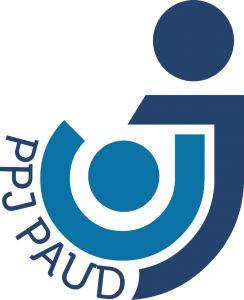Hubungan Perilaku Prososial dengan Kemampuan HOTS Anak Usia 5-6 Tahun
Kontribusi Perilaku Prososial dengan Kemampuan Hots Anak Usia 5-6 Tahun
DOI:
https://doi.org/10.30736/jce.v8i2.2131Keywords:
Prosocial skills, Critical thinking skills (HOTS), Early Childhood Education, Critical thinkingAbstract
Penelitian ini dilatar belakangi oleh pembelajaran yang dilakukan disekolah yang bersifat monoton dan konvensional sehingga kemampuan HOTS tidak berkembang secara optimal. Penelitian ini dilakukan untuk mengetahui bagaimana hubungan perilaku prososial dan HOTS pada anak usia dini. Metode analisis data yang digunakan yaitu uji normalitas dan linieritas serta uji hipotesis menggunakan persamaan korelasi Pearson Product Moment. Metode pengumpulan data yang digunakan yaitu melalui penyebaran angket dengan skala likert. Hasil penelitian menunjukkan bahwa: (1) Perilaku Prososial & Kemampuan Hots anak usia 5-6 tahun di TK Jihad berkembang sesuai dengan harapan (2) terdapat hubungan yang signifikan antara perilaku prososial dengan kemampuan HOTS anak usia 5-6 tahun (3) Perilaku Prososial dan kemampuan berpikir kritis (HOTS) saling terkait dan saling menguntungkan. Tingkatan keeratan hubungan antara perilaku prososial dengan kemampuan berpikir kritis (HOTS) anak yaitu sebesar 0,78 dan termasuk hubungan yang kuat. Hal tersebut menggambarkan perilaku prososial pada masa awal kehidupan anak dapat meningkatkan kemampuan berpikir kritis, oleh karena itu program pembelajaran PAUD harus menekankan pada perilaku prososial untuk memfasilitasi perkembangan anak secara optimal.
References
Aisyah. (2021). Peran Guru Dalam Mengembangkan Kreativitas Anak Usia Dini. Jurnal Pendidikan Anak Usia Dini, 3 (2)(2), 46–54.
Eisenberg, N., & Mussen, P. . (1989). The Roots of Prosocial Behavior in Children. Cambridge University Press.
Harjanty, R., & Muzdalifah, F. (2022). Implementation of STEAM project-based learning in developing early childhood cooperation. Journal of Islamic Early Childhood Education, 5(1), 47–56.
Ibrahim, A., Alang, A. H., Madi, Baharuddin, Ahmad, M. A., & Darmawati. (2018). METODOLOGI PENELITIAN (I. Ismail (ed.)). GUNADARMA ILMU.
Kusmaryono, I., Maharani, H. R., & Muhtarom. (2024). MEMPROMOSIKAN PEMIKIRAN KRITIS MELALUI PEMBELAJARAN MATEMATIKA (C. Anwar (ed.)).
Kusumawardani, C. A., & Soetjiningsih, C. H. (2022). EMPATI DAN PERILAKU PROSOSIAL PADA RELAWAN JOGO TONGGO. Jurnal Inovasi Penelitian, 3(7), 7133–7140.
Marlina, S. (2021). Studi Sosial AnaK Usia Dini. PACE.
Marlina, S., Gistituati, N., Moeis, I., Solfema, & Suryana, D. (2023). Prosocial Stimulation based on Behavior Problems to Develop Childrens Social Skills in Kindergarten. Journal For Re Attach Therapy and Developmental Diversities, 721–732.
Purnamasari, I., Handayani, D., & Formen, A. (2020). Stimulasi Keterampilan HOTs dalam PAUD Melalui Pembelajaran STEAM. Seminar Nasional Pascasarjana, 3(1), 507–516. https://proceeding.unnes.ac.id/index.php/snpasca/article/download/614/533
Sumbawa, R. O., Munawar, M., & Sagala, A. C. D. (2022). Pola Komunikasi Guru Dalam Menstimulasi Kemampuan Hots Pada Anak Usia 5 - 6 Tahun Di Paud Taman Belia Candi Semarang. Jurnal Penelitian Dalam Bidang Pendidikan Anak Usia Dini, 11(2), 538–547. https://doi.org/https://doi.org/10.26877/paudia.13245 Pola
Sutama, I. W., Astuti, W., Pramono, Ghofur, M. A., N., D. E., & Sangadah, L. (2021). Pengembangan E-Modul “Bagaimana Merancang dan Melaksanakan Pembelajaran untuk Memicu HOTS Anak Usia Dini melalui Open Ended Play” Berbasis Ncesoft Flip Book Maker. SELING: Jurnal Program Studi PGRA, 7(1), 91–101. http://www.jurnal.stitnualhikmah.ac.id/index.php/seling/article/view/736
Utari. (2011). Taksonomi Bloom. Jurnal Pusdiklat KNPK, 1.
Utoyo, S. (2017). Metode Pengembangan Matematika Anak Usia Dini. Ideas Publishing.
Vygotsky, L. (1978). Mind in Society (The Development of Higher Psychological Processes) (M. Cole, V. J. Steiner, S. Scribner, & E. Souberman (eds.)). Harvard University Press.
Wijayanti, T. D. (2023). Analisis Capaian Higher Order Thingking Skills (HOTS) Anak Usia Dini Melalui Pembelajaran Berbasis Projek. JURNAL EDUCHILD (Pendidikan & Sosial), 12(1), 5–11. websites: https://educhild.ejournal.unri.ac.id/index.php/JPSBE
Zahroh, S., & Na’imah. (2020). No Title. Jurnal Pendidikan Dan Pembelajaran Anak Usia Dini, Volume 7, 1–9.
Downloads
Published
How to Cite
Issue
Section
License
Copyright (c) 2024 Zulhijrawanti, Serli Marlina, Imam Muthie

This work is licensed under a Creative Commons Attribution-ShareAlike 4.0 International License.
Please find the rights and licenses in JCE (Journal of Childhood Education). By submitting the article/manuscript of the article, the author(s) agree with this policy. No specific document sign-off is required.
1. License
Use of articles will be governed by the Creative Commons Attribution - ShareAlike license as currently displayed on Creative Commons Attribution-ShareAlike 4.0 International License.
2. Author(s)' Warranties
The author warrants that the article is original, written by stated author(s), has not been published before, contains no unlawful statements, does not infringe the rights of others, is subject to copyright that is vested exclusively in the author and free of any third party rights, and that any necessary written permissions to quote from other sources have been obtained by the author(s).
3. User Rights
JCE (Journal of Childhood Education)'s spirit is to disseminate articles published are as free as possible but there is a little payment for publication. Under the Creative Commons license, JCE (Journal of Childhood Education) permits users to copy, distribute, display, and perform the work for commercial purposes. Users will also need to attribute authors and JCE (Journal of Childhood Education) on distributing works in the journal and other media of publications.
4. Co-Authorship
If the article was jointly prepared by more than one author, any authors submitting the manuscript warrants that he/she has been authorized by all co-authors to be agreed on this copyright and license notice (agreement) on their behalf, and agrees to inform his/her co-authors of the terms of this policy. JCE (Journal of Childhood Education) will not be held liable for anything that may arise due to the author(s) internal dispute. JCE (Journal of Childhood Education) will only communicate with the corresponding author.
5. Miscellaneous
JCE (Journal of Childhood Education) will publish the article (or have it published) in the journal if the article’s editorial process is successfully completed. JCE (Journal of Childhood Education)'s editors may modify the article to a style of punctuation, spelling, capitalization, referencing and usage that deems appropriate. The author acknowledges that the article may be published so that it will be publicly accessible and such access will be free of charge for the readers as mentioned in point 3.
JCE (Journal of Childhood Education) by Universitas Islam Lamongan is licensed under a Creative Commons Attribution-ShareAlike 4.0 International License.Based on a work at http://journalfai.unisla.ac.id/index.php/jce.













